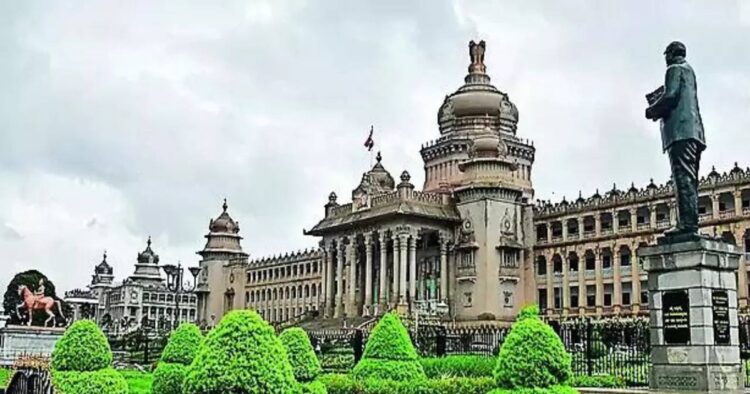A bill aimed at collecting funds from temples with annual incomes exceeding ₹10 lakh has been passed by both houses of the Karnataka legislature, despite previous opposition. The Karnataka Hindu Religious Institutions and Charitable Endowments (Amendment) Bill, 2024, which was initially defeated by the opposition BJP-JD(S) combined in the legislative council, has now been approved following reconsideration. The bill is set to become law once it receives the governor’s assent.
The bill, which was defeated by a voice vote in the upper house on February 23, faced resistance from the opposition despite being passed by the assembly earlier in the week. However, after being reconsidered and passed by the legislative assembly once again, it was eventually approved by the legislative council.
The passage of the bill in the council, which had rejected it previously amidst chaos and protests, marks a significant development. Opposition members from the BJP and JD(S) had protested against the government over unrelated issues, leading to the bill’s initial defeat.
The Muzrai Minister, Ramalinga Reddy, who introduced the bill in the assembly, emphasized the importance of its passage for the welfare of religious institutions. He highlighted the bill’s provisions aimed at contributing to the upkeep of temples and the welfare of priests.
The bill proposes to collect five percent of the income from temples earning between ₹10 lakh and less than ₹one crore, and ten percent from temples earning over ₹one crore annually. These funds would be pooled into a Common Pool Fund, managed by the ‘Rajya Dharmika Parishath’, for the benefit of priests and the maintenance of designated temples.
The controversy surrounding the bill stemmed from accusations by the opposition, particularly the BJP, who claimed that the government was attempting to exploit temple funds for its own gain. In response, the Congress pointed out previous amendments in 2011 that similarly sought funds from high-income Hindu shrines.
Despite opposition protests and walkouts during the bill’s consideration, it was eventually passed through a voice vote in the assembly. The absence of opposition members during the final vote in the assembly facilitated its passage.
The bill’s passage signifies a contentious yet significant step in temple fund management in Karnataka, with implications for the administration and welfare of religious institutions across the state.















Comments